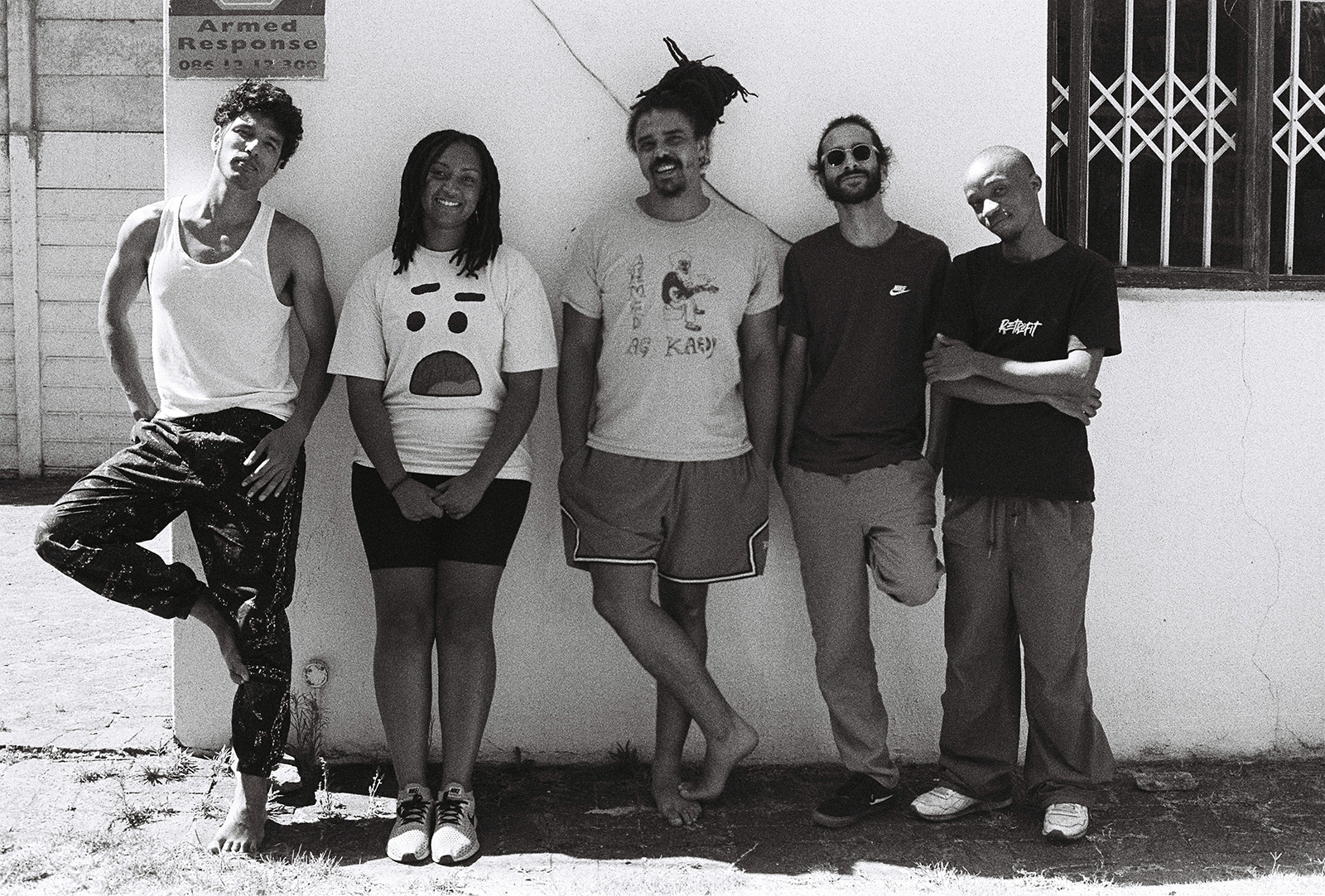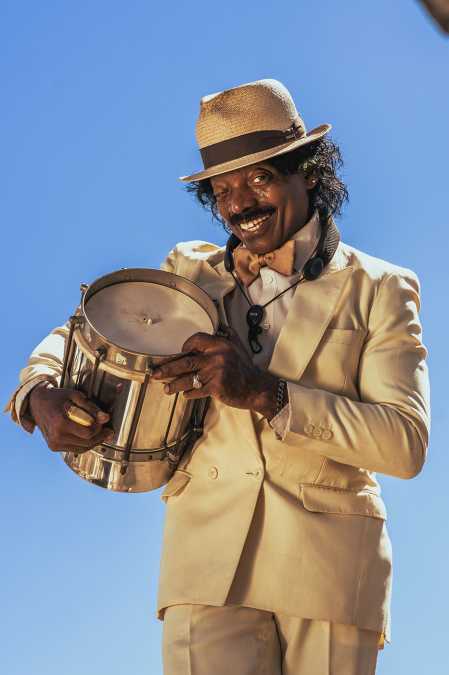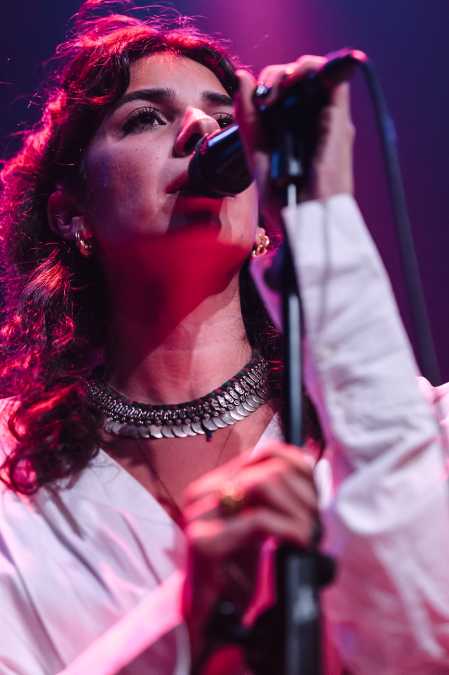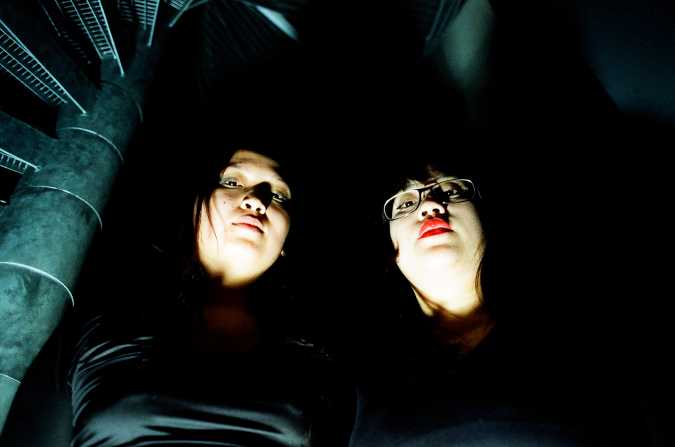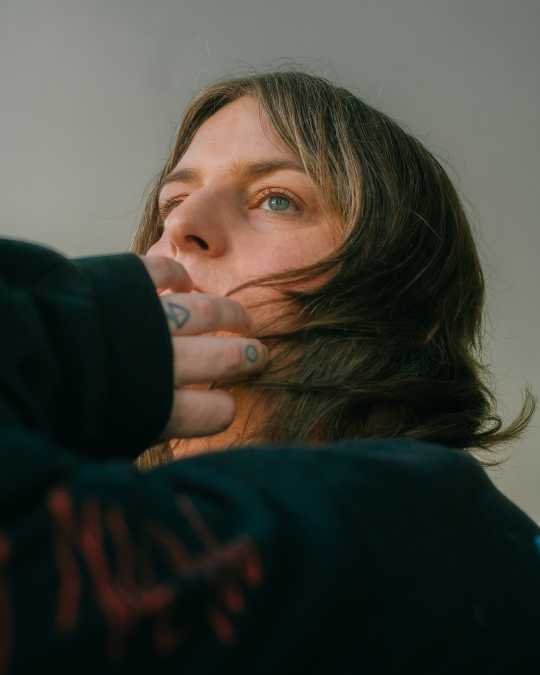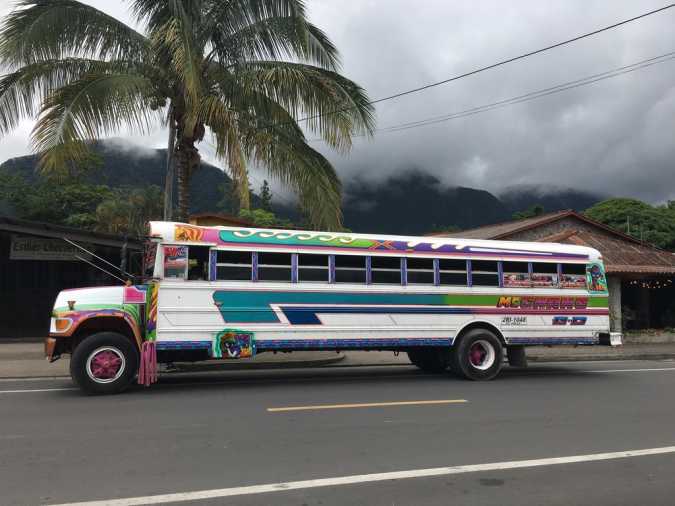A South African drummer, composer, scholar and bandleader based in Cape Town, Asher Gamedze's music is a profound mixture of various musical traditions from Southern Africa, free improvisation, jazz and radical social and political thought, turning his music into a powerful act of freedom, resistance and activism.
After multiple performances at Le Guess Who? over the years, Asher Gamedze is taking on the role of guest curator at the 2025 edition of the festival, as well as performing with his new group, A Semblance. Here, Gamedze talks about the concept of From Cape to Cairo and how it fed into the thought process behind his upcoming curation.
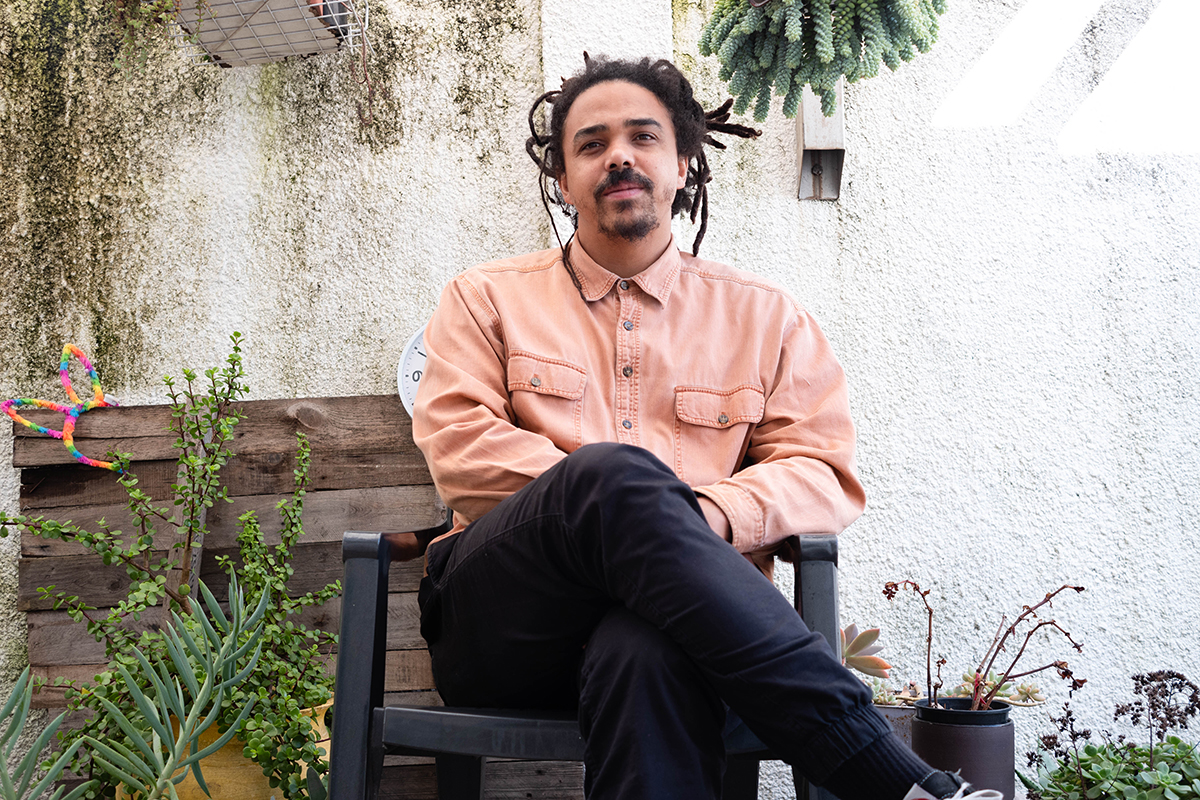
Photography: Lungiswa Gqunta
I. A “Beginning”
“From Cape to Cairo” was originally made (in)famous by arch-imperialist Cecil John Rhodes. It referred to his vision of connecting Britain’s colonies on the continent by constructing a telegraph line and a continuous railway unfettered by national borders. Of course there was no altruistic intention behind this plan, certainly not for African peoples. The grandiose and megalomaniac scheme’s purposes were to facilitate the continuation and intensification of natural resource extraction across an ever-expanding territory, and to connect markets across national/colonial borders to enable the efficient distribution and flogging of European commodities.
While Rhodes was a proud servant of the British empire, he was aware that his dream required buy-in and support from other colonial powers. In the process of planning the extensive project, which was never realised in full, he had amicable meetings with Belgium’s king Leopold II and Germany’s emperor Wilhelm II, and western European financiers to secure their support for the pan-imperialist venture. Their consensus: collaboration is key. Africa was fundamentally, for them, a site for pillage and profit, so while different colonial powers ruled different sections (now “countries”), cooperation amongst them was essential to ongoing accumulation.
II. Another “Beginning”
“From Cape to Cairo” is a slogan from the pan-Africanist and black consciousness political traditions in the South African national liberation movement. Along with the next lyric of a struggle song - Morocco to Madagascar - it gestures toward the dream of liberating the continent from imperialist plunder, colonial and neo-colonial oppression.
It opens the possibility of renewed affinities amongst African peoples. It refuses the contemporary categorisation of and arbitrary division of the continent at the Sahara. Instead, it insists that from the South to the North, we share a common destiny and we should struggle collectively for it. In this way it situates “African” as a political identity which can be blown open further and oriented towards an identification with all those who share the condition of colonial and imperialist oppression and exploitation. “Outwith” is interested in precisely this possibility.
III. With; Out; Connections
My 2025 Le Guess Who? curation is inspired by and, in a small way, attempts to contribute to the enactment and imagination of a radical project in the world through figuring out new/old ways of relating based on past and future collaborations. In different ways, I have some kind of autobiographical connection, shared affinity and/or ethos with all the acts within this line-up.
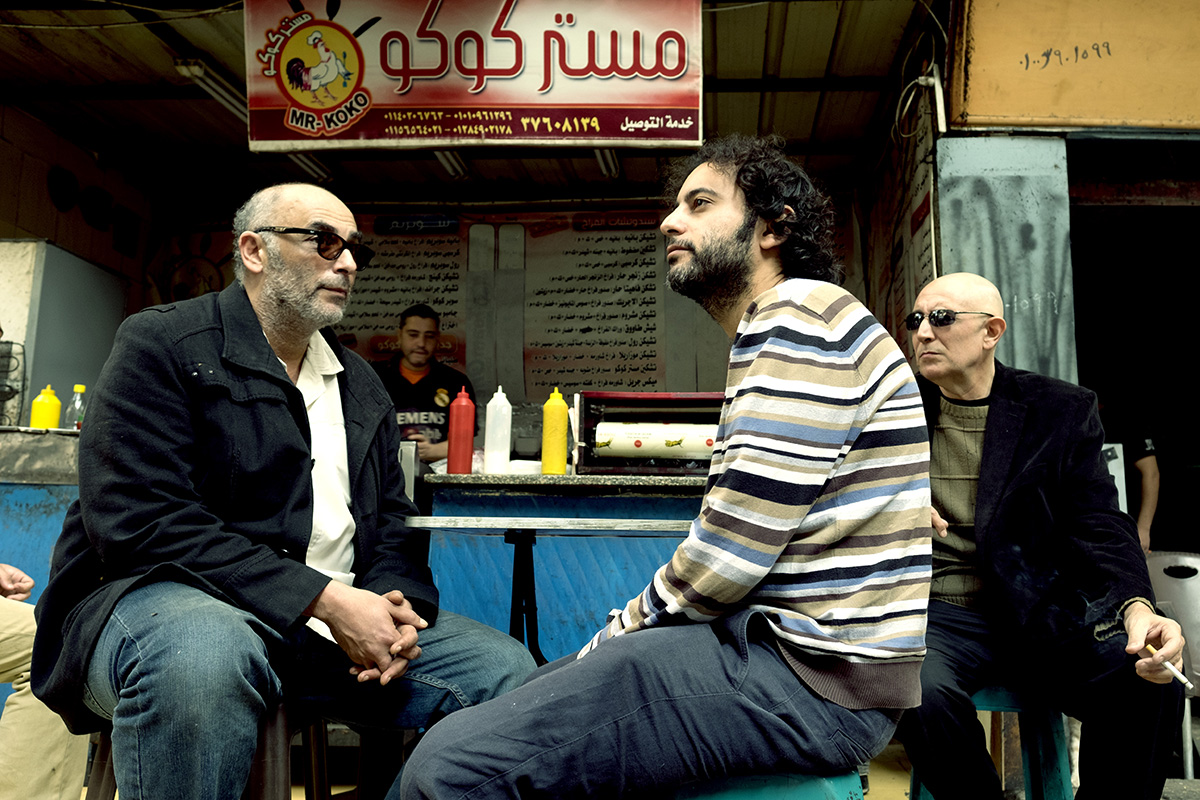
The Dwarfs of East Agouza by Maged Nader
I first met multi-instrumentalist Maurice Louca and Özün Usta in 2019 at Rewire Festival in The Hague. I was playing with Angel Bat Dawid & Tha Brothahood and they in Maurice’s Elephantine band. Our two bands shared a dressing room and had a great night together. Just over a year later, in late 2020, high covid, I connected and spent a lot of time with Maurice in his hometown, Cairo. I was there having my own embodied Cape to Cairo experience and teaching a semester-long course on historical consciousness at an autonomous college. In those few months in Cairo, with Maurice, I put together Another Time Ensemble (ATE) which includes Adham Zidan and Cherif el-Masri as well as guitarist, songwriter, singer, saxophonist and Sun City Girl, Alan Bishop. Maurice and Alan, with guitar player Sam Shalabi, are two thirds of long-standing improvising trio The Dwarfs of East Agouza who will perform at Le Guess Who 2025.
Dirar Kalash first got in touch with me in connection with a regular show on black music and struggle that he was producing for Radio Ma3azef. The idea for episode he was planning was to feature contributions by black musicians expressing support for the Palestinian people in the midst of the violent escalations of May 2021’s “Unity Intifada” as part of the long history of solidarity. I contributed a piece entitled “Black Intifada,” a composition of mine which featured a conversation with a close friend and comrade of mine, Leigh-Ann Naidoo, around the relationship between Black Consciousness and the Palestinian struggle and other global struggles against colonialism and dispossession. Since then we have stayed in touch and looked for opportunities to meet and work together. The occasion has finally presented itself as I will perform as part of Dirar’s Sonic Front with him and bassist Luke Stewart at Le Guess Who 2025.
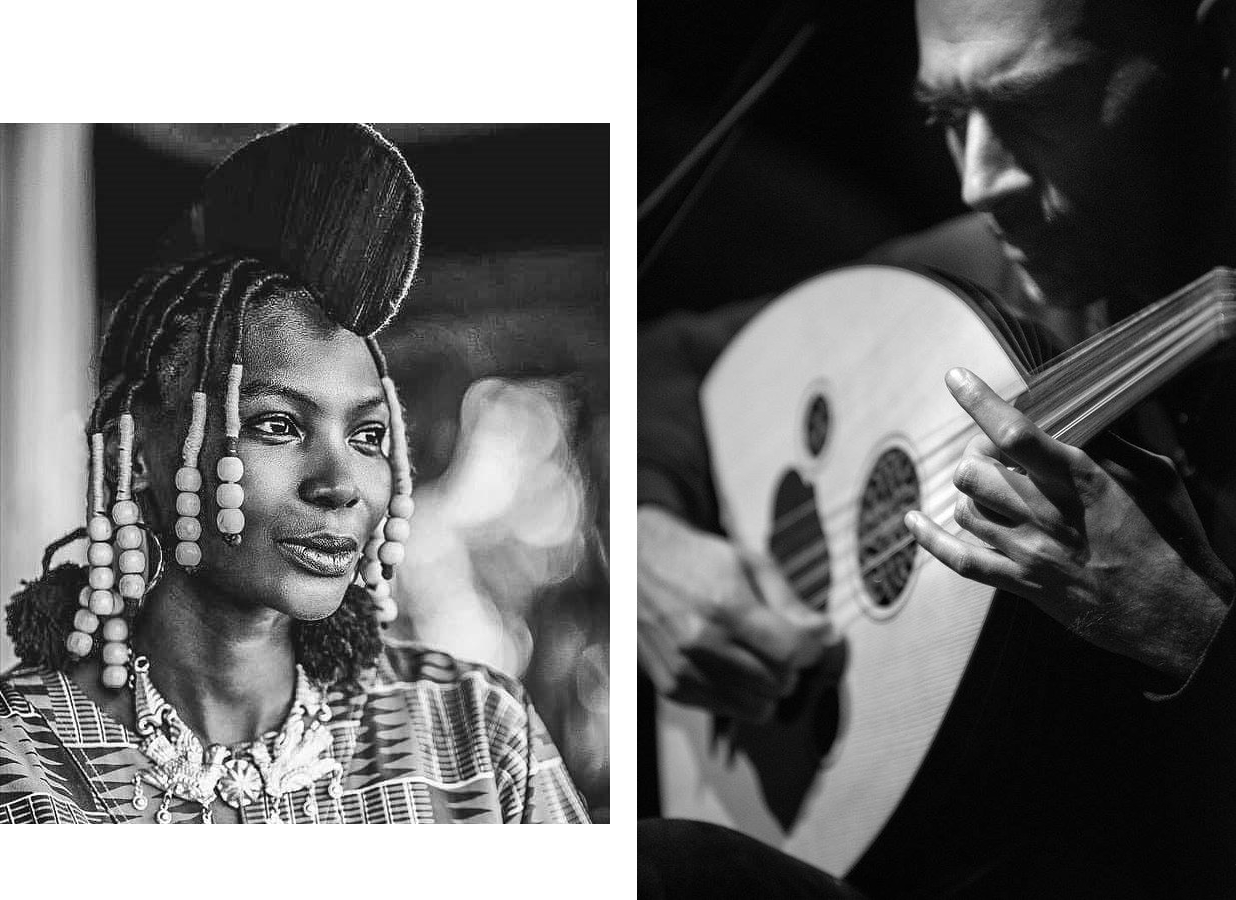
The Vocal Museum by Masello Motana & Dirar Kalash (photo by Petra Cvelbar)
Late in 2024 I travelled to Istanbul to play at Beyoğlu Jazz Festival and got to spend some time with Özün, a wonderful drummer and one of the kindest people in the world. We had remained sporadically in touch since meeting at Rewire Festival in 2019. There we also hung out with saxophone player Ali Onur Olgun - walking the streets, drinking coffee and talking about this music that we are all involved in.
Later that night we had a subterranean jam session that now feels somehow like a dream. A friend of Özün and Onur was renting the basement level of a building and was in the process of transforming it into a venue for music and other cultural happenings. A small group of us, maybe about twelve to fifteen altogether – musicians, dancers, hangers – congregated in the underground and played free for about five to six hours. There wasn’t enough of an audience to make it a “show”, and that wasn’t the ethos of it either. It was more like a mutual hang with different combinations and configurations of people playing, dancing, sitting, listening and singing underneath the pressure of the times. Özün and Onur play at Le Guess Who 2025 in a trio with bassist Esat Ekincioglu.
IV. Underground in the Cape
Three hundred and seventy-three years after the Dutch East India Company invaded, colonised and built a permanent settlement in the Cape, three acts will be flipping the script and traveling from Cape Town to Utrecht for Le Guess Who 2025 as part of my curation. These include my newest project A Semblance, Masello Motana’s Vocal Museum, and DEAD SYMBOLS. Interestingly, as co-inhabitors of the under-edges of the independent music scene in Cape Town, none of our projects have ever performed together.
DEAD SYMBOLS describe themselves as “a Cape Town based critical sound collective committed to dangerous thinking and sonic vandalism. Comprised of Vusumzi Nkomo, Fernando Damon and Rowan Smith.” Their collages and soundscapes of late-stage doom channel and synthesise the truly dark feeling that underlies Cape Town – its present and its past. The racist terror and its immanent critique, as old as Cape Town as Cape Town, and the dialectical basis of any colonial settlement, are the material and metaphysical conditions out of which the symbols of the dead sound. The synthesized ghosts and the midi graves glitch and sometimes groove. The processed protest of the mega-phone abstracts the already-abstracted proselytising voice of black lament. Le Guess Who 2025 will be DEAD SYMBOLS' first European show.
As a mutating response, her project plunges the vocal depths of locally-situated musical traditions. From reinterpretations of children’s play songs and South African jazz classics – the “genre that is very close to the beginnings of the township” - to tunes from the church of struggle. In this way the Vocal Museum is a museum alive, transposed to be heard with the memory of and from the contemporary moment and those that came before it. Masello’s voice, like a southern/urban griot rooted in the long unfolding history of song as and in black social life, plays the role of rememberer, romantic, and realist. Fellow travelers, the musicians of A Semblance, will play as part of the museum for this iteration at Le Guess Who 2025.
A Semblance includes myself, Asher Gamedze, on drums, Ru Slayen on percussion, Rob Scott on bass, Nobuhle Ashanti on keyboard and synth, and Keegan Steenkamp on trumpet. Assembling this project has been about returning to some kind of collectivity that has an existence beyond getting together to play paid gigs.
Many of my projects are logistically unwieldy. As a result of this, and the historical and ongoing development of Europe at the expense of the underdevelopment of Africa, over the last few years I have ended up gigging and touring my own projects more in the well-resourced scenes of Europe than at home. A Semblance’s journey has been about a groundedness in our own context, being part of the local scene, investing time, energy and resources in gigging, touring and performing at home before we bring what we bring to Europe. Le Guess Who 2025 will be part of A Semblance’s first European tour.
A Semblance by Nishal Robb
V. What with?
While the pillage of the African continent and the broader Third World continues unabated by old and new imperialists and their compradors, while our resources are violently appropriated, and asymmetrical wars are fought over our lands, some of us will be connecting at Le Guess Who 2025. Cape to Cairo and beyond! See you there.
Stepping out with...
Words by Asher Gamedze
A Semblance perform at Le Guess Who? 2025 on Saturday, 8 November. Gamedze's curation takes place on Friday, Saturday and Sunday during the festival.
